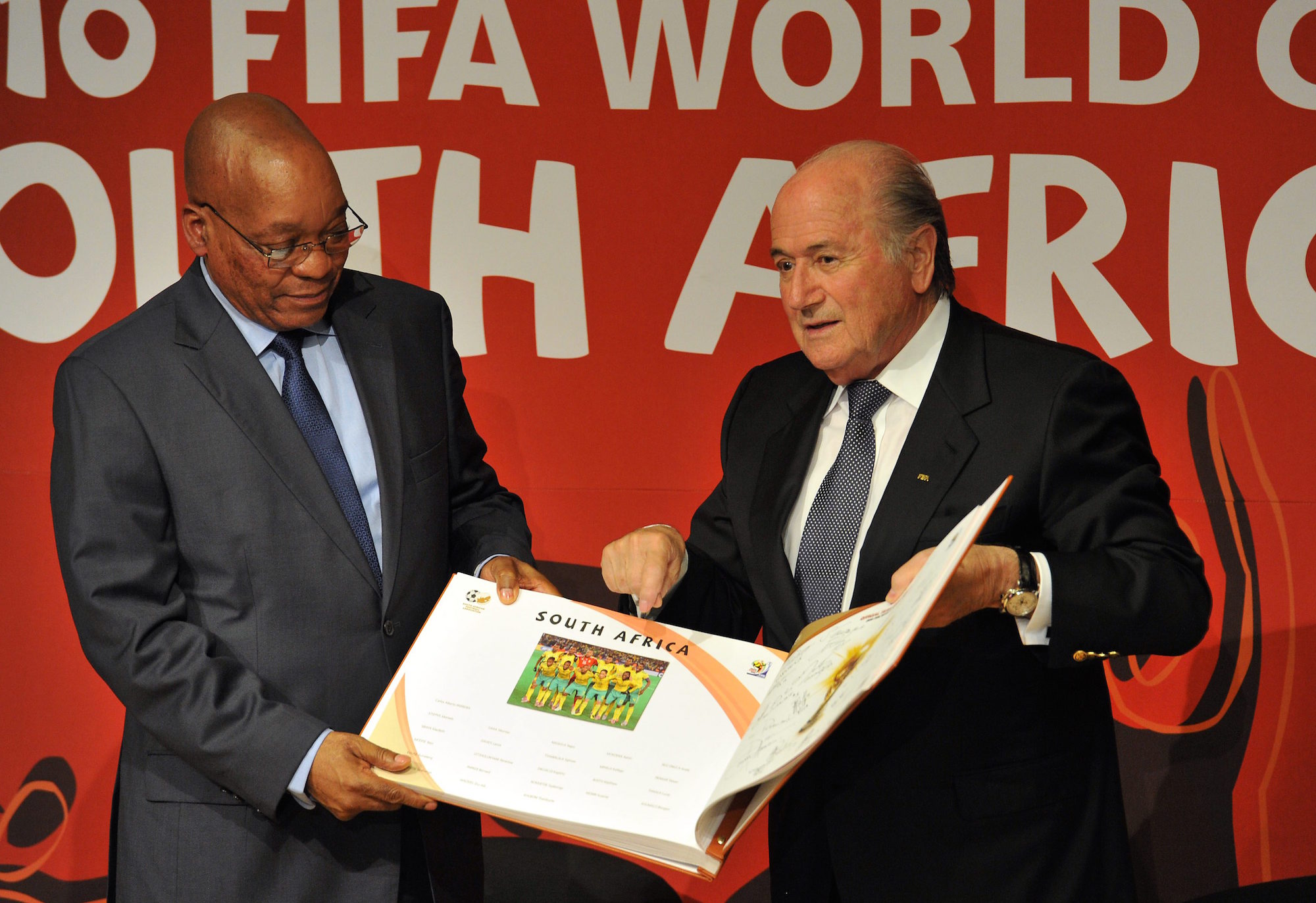Hero or villain? The question would be met with incredulity in the west, where Blatter is seen as the figurehead of a corupt regime at FIFA.
Certainly events in Zurich in May appeared to support the long-held suspicion that Blatter oversees an organisation that is rotten to the core, with seven senior FIFA officials arrested in dawn raids instigated by the FBI.
Even hardened cynics were shocked at the dramatic nature of the unfolding scandal, with such high-ranking officials as FIFA Executive Committee members Jeffrey Webb and Eduardo Li among those implicated.
Yet only days later, Blatter won a record fifth term as President of FIFA, taking his reign of influence into a 34th year, since becoming General Secretary in 1981 and President in 1998.
The principal reason that Blatter saw off his only opponent, Prince Ali bin Hussein of Jordan, by a large majority was simple: he has the overwhelming support of Africa, Asia and other developing regions.
While Europe’s mistrust of Blatter was reflected in the majority of UEFA members choosing to vote against him, the Swiss still enjoys huge support in those parts of the world that are not traditional powerhouses of the global game. The Confederation of African Nations (CAF) and the Asian Federation (AFC) voted en-bloc to re-elect Blatter, loyal to a man they see as having done more for football in the developing world than anyone else.
I like Sepp Blatter he has tried for Africa
— Proudly Nigerian (@Mr_kunlecole) July 20, 2015
@SeppBlatter Thanks for improving football in Africa. Football for Hope bear testimony of this. You leave behind a rich legacy. Thanks
— DADREG (@DADREG1) June 28, 2015
https://twitter.com/TheGreatGuti/status/614742042690887681
Without doubt, Africa’s influence in football has grown enormously under Blatter. He has overseen a huge programme of spending and assistance throughout the football world. As important as the money given to emerging nations, he has also given them a voice at football’s top table.
‘I am a proud African, and I fight for football and am really anti-corruption… I support Blatter because of what he and FIFA have done for African football.’
Manuel Lopes Nascimento, President of the Guinea-Bissau football federation, explained how his tiny country has benefitted from Blatter and his close associate Issa Hayatou, who is president of CAF.
‘Football has had a big improvement in Africa because of Mr Blatter and Mr Hayatou. If you compared it to how it was in the 1970s and 1980s, football in Africa today is well developed,’ said Lopes Nascimento.
‘I am president of a football team that was founded by the Portuguese in the 1930s. They had never achieved a final before, but under me we became national champions twice. I am a proud African, and I fight for football and am really anti-corruption. No-one can corrupt me. I support Blatter because of what he and FIFA have done for African football.’
Why Africa supported Blatter – Manuel Lopes Nascimento of Guinea Bissau explains https://t.co/IeEDlJQgLt via @YouTube
— Gerry Cox (@GerryCox) June 3, 2015
Lopes Nascimento speaks for the majority of other African federations, who voted unanimously for Blatter.
‘We in CAF are very solid in our policy. We speak with one voice and we obey our leader. That is not to say that if they have made mistakes, we do not tell them so and tell them they are wrong.
‘But we decided to vote for Blatter, because of what he has done for Africa.’
Guinea-Bissau may be a tiny country, but it has the same voting power and influence as traditional powers such as Germany, England and Italy.
‘FIFA’s support is really important for us. My federation is small, but being the president of Guinea-Bissau federation is similar to being president of the German or American football associations.
‘The United Nations does not have equal voices for every country. We have equality within FIFA.’
‘What we don’t want in FIFA is a United Nations-style issue, where there is one vote for Germany, one for England, one for America but no votes for Africa.’
In terms of World Cup participation, Africa’s presence has increased enormously since Blatter has been leading FIFA. Egypt contested the 1934 World Cup in Italy, but it was not until 1970 that another African country took part in the finals – Morocco.
Four years earlier, in 1966, African countries boycotted the tournament in England because of their lack of representation. Since then, however, African participation in the final tournament has grown steadily.
In 1982, after Blatter had become General Secretary, the number of finallists was increased from 16 to 24, creating an extra automatic place for African nations.
In 1998, as Blatter became president, the final tournament was expanded further to 32 nations, with Africa receiving five places, all qualifying for appearance money, which now stands at an invaluable US$1.5 million.

By 2010, when it was staged in South Africa, there were a record six African countries in the finals. And it was Blatter’s initiative to take the tournament to different parts of the world – first in Asia with Japan and South Korea in 2002, then South Africa eight years later.
Lopes Nascimento is also concerned at who might follow Blatter, and whether they would seek to reverse the power Africa has gained.
‘Who knows what the next president after Blatter will be like? Maybe he will be good, maybe he will be worse. What we don’t want is a United Nations-style issue, where there is one vote for Germany, one for England, one for America but no votes for Africa. Forget that. We are thinking about football; we are working for the profit and benefit of football. What we need is respect.’
Do you think Sepp Blatter has been good for African football or do you think he should have been kicked out quicker? Join in the conversation at #TRUEAfrica.
